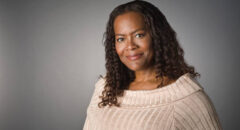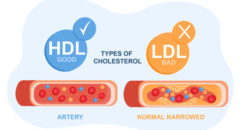
Have you ever asked for a "thingamajig" when you really meant a screwdriver? Have you ever misread a word on a street sign as you drove past? Of course. Everybody has language glitches every now and then. Now try to imagine a world where everything is a thingamajig and every sign, book, or menu is gibberish. For many people recovering from a stroke, this world is a reality.
Every year, 80,000 stroke patients have trouble understanding language and speaking in a way that's understandable to others, a condition called aphasia. They are physically able to read, write, and talk, but the part of the brain that processes words no longer works the way it should. In extreme cases, the stroke patient may not be able speak, write, or recognize words on a page. In milder cases, a person may able to speak and read with just a few stumbles. Some people with aphasia construct long, rambling sentences that they believe make sense. Others can deliver just a couple of words at a time, leaving their listeners scratching their heads about what they are trying to say.
Aphasia can be a tremendously frustrating and isolating condition. But there is reason to hope, says Renee Heldman Karantounis, a speech pathologist at Rose Hospital in Denver. Almost all stroke patients with aphasia have great potential to improve their language skills, she says. With proper treatment -- and plenty of support from family members -- many stroke patients can work through their aphasia successfully.
Hour by hour, year by year
The most dramatic improvements usually occur in the first hours, days, or weeks after a stroke, which is often a time of rapid healing in the brain. Heldman Karantounis has seen patients with global aphasia -- an almost complete inability to speak or understand words -- carry on basically normal conversations just hours later. "You can walk into a room and -- boom -- it's a totally different person from the day before," she says.
After a few months pass, the window for rapid miracles is over. But that doesn't mean patients can't continue to slowly improve their language skills. "Recovery from aphasia can continue for many, many years," says Martin L. Albert, MD, PhD, a professor of neurology at Boston University School of Medicine and the director of the Harold Goodglass Aphasia Research Center.
Speech therapy
For many patients, speech therapy is an integral part of recovery. According to Albert, therapy can improve speech at any stage of the recovery process. In this age of managed care, however, therapists generally have just a few weeks to work with patients, Heldman Karantounis says. Fortunately, that's enough time to make progress, she says.
Different therapists have different strategies. Heldman, for one, often uses word games that encourage patients to practice words and sounds that give them trouble. At the same time, they are discouraged from using gestures or easier words to compensate for their shortcomings.
This approach, called constraint-induced therapy, mirrors a highly successful form of physical therapy. If a stroke patient has trouble controlling her left arm, for example, a therapist may tie down the patient's right arm for all or part of the session. This encourages the patient to learn how to make the most of the weak limb. Likewise, speech therapy can help a patient say "cat" by discouraging her from making petting motions.
Constraint-induced speech therapy is still relatively new and uncommon, but it's starting to attract attention. In a small study published in Stroke, patients who underwent the therapy showed greater improvements in communication skills than patients who had routine speech therapy.
RELATED: Life after Stroke: Tips for Recovering Communication Skills
New approaches
Researchers are constantly developing new ways to battle aphasia. Computer programs have helped some patients retrain their brains and recover lost words. Various communication devices, typically equipped with a special keyboard, can help patients communicate with their family members.
Drugs that stimulate blood flow to the brain are also raising hopes. In a small study published in Stroke, patients who took the drug piracetam showed more brain activity and enjoyed greater improvements in language than patients who took a placebo (a pill without medicine). The drug is still experimental, and very few institutions prescribe it to stroke patients. Boston University School of Medicine happens to be one of those institutions. "The potential [of piracetam] is very great," Albert says. "We've had some very exciting preliminary results."
Along with developing new drugs, other exciting treatments are on the horizon. Today, scientists are studying the viability of tissue transplantation using neural stem cells and electronic prostheses. In fact, experts believe treatment is at a crossroads and envision a day when it will be possible to biologically repair damaged brain tissue to significantly improve the functioning of people suffering from aphasia. Researchers are also experimenting with non-invasive stimulation to activate certain parts of the brain.
RELATED: Can You Do Stroke Rehab At Home?
Family support
Of course, no treatment can take the place of a supportive, understanding family. Heldman spends much of her time helping spouses, children, and grandchildren reach out to stroke victims. Each patient has different needs and abilities, but here are a few basic guidelines to follow. (Many of these tips come from the National Aphasia Association
- Keep things simple, but not childish. When talking to a person with aphasia, it often helps to use short, concise sentences. At the same time, try not to "talk down" to them. Stroke victims still value their dignity.
- Play to their strengths. If he or she can read and write but struggles with speech, try communicating through notes. You can also encourage them to use gestures to get their ideas across.
- Get their attention. Make sure they know you're trying to talk to them. If possible, limit distracting background noises like the radio, telephone, and other peoples' conversations.
- Be supportive. Praise them whenever they communicate, no matter how they do it.
- Be patient. Give her extra time to respond to questions, and don't speak for her unless it's necessary.
- Keep them busy. Stroke victims don't need to stay locked away at home. If possible, take them out to dinner or help them visit with friends and family. Life has changed, but it hasn't stopped.
- Stay informed. Try to learn all you can about your loved one's condition. You may also consider joining a support group, which can be a valuable source of practical advice. To find a support group near you, or to learn more about every aspect of strokes, you can contact the National Stroke Association by calling 1-800-STROKES, or visiting the organization's website.








